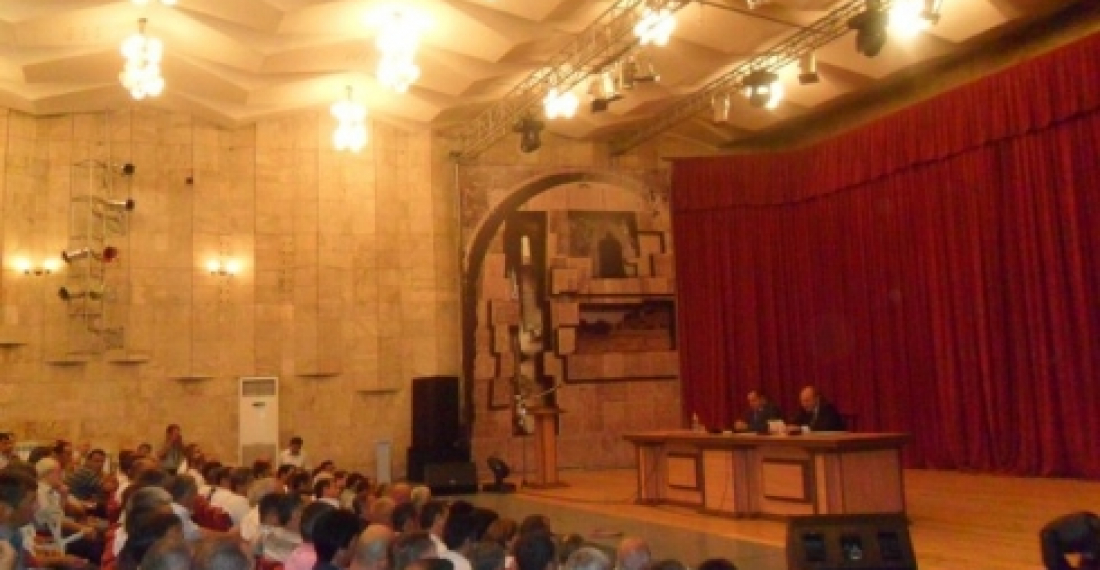Campaigning ended in the elections in the self declared republic of Nagorno-Karabakh, ahead of polls on Thursday to elect the territory's fifth President. Wednesday is a day of reflection and no political activity is allowed.
There are three contestants: incumbent President Bako Sahakyan; former Deputy Defence Minister Vitali Balasanyan; and Deputy Director of Academic Affairs of the Stepanakert campus of the State Agrarian University of Armenia, Arkadi Soghomonyan. Valeri Khachatryan, a fourth candidate, submitted a request to formally withdraw from the race to the Central Election Committee on Monday 9 July.
Sahakyan is the favorite to win but has been seriously challenged by Balsanyan, who has attracted the support of many amongst Karabakh opposition forces who consider Sahakyan's rule as a period of stagnation. Sahakyan has conducted a traditional campaign promising stability and continuity. Both candidates promised to re-enforce the security of Karabakh against Azerbaijani threats.
Bako Sahakyan reserved his last activity in the campaign for a meeting with veterans of the war with Azerbaijan. Addressing them in the Palace of Culture in Stepanakert he promised that housing and other problems of veterans will be dealt with in his next term if elected. Veterans constitute a large and important part of the electorate.
The Azerbaijani government has dismissed the elections as another Armenian attempt to justify the status quo and said that they hinder the peace process. The spokesman for the Azerbaijani Foreign Ministry Elman Abdullaev "elections in the occupied lands of Azerbaijan is an attempt of the Armenian side to fix the current status quo whose unacceptability is recognized by the world community".
In the meantime the issue of the monitoring of the Karabakh elections is also creating some controversy. Speaking at the OSCE Human Dimension Meeting in Vienna last week the delegate of Azerbaijan appealed to the OSCE member states not to allow their citizens to travel to Karabakh to monitor the elections. However Cypriot media has reported that a greek Cypriot member of the European parliament, Eleni Teoharus was going to be in Karabakh for the elections. Ar,menian media have also shown pictures of a Canadian parliamentary delegation in Yerevan meeting with Armenian Foireign Minister Edward Nalbandian before travelling to Stepanakert for the elections. The Azerbaijani Foreign Ministry has again warned that ity will put foreigners visiting nagorno-Karabakh on a black list and they would not subsequently be able to travel to Azerbaijan.
source: commonspace.eu
photo: Bako Sahakyan at an election campaign meeting at the Palace of Culture in Stepanakert, ahead of elections on Thursday. (photo courtesy of Artsakh Today).







